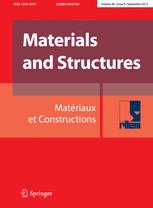Prediction of Heat of Hydration of Cementitious Systems Using Gaussian Process Regression Enables Mass Concrete Thermal Modeling

Al-Hasani, L., Perez, G., Herndon, H., Park, J., Poole, J., Tien, I., Washburn, N., Cho, Y., Gentry, T., and Kurtis, K., “Prediction of Heat of Hydration of Cementitious Systems Using Gaussian Process Regression Enables Mass Concrete Thermal Modeling, Materials and Structures, Vol. 56, No. 45, 2023
Abstract — The temperature and time-dependent heat of hydration of cementitious pastes is a fundamental property to understand concrete performance. Cement hydration can be depicted using kinetic models by considering the effect of the chemical and physical properties of the cementitious pastes and the curing conditions. Supplementary cementitious materials and fillers are used as partial replacements for Portland cement to advance concrete performance and durability, which can exert varying effects on hydration kinetics. This adds a level of complexity that is difficult to capture with existing modeling methods. Here, the time and temperature-dependent heat of hydration of cementitious pastes was predicted using the machine learning Gaussian process regression (GPR) with information on the chemical and physical characteristics of the cementitious systems. Results show that high-fidelity heat of hydration predictions can be achieved using the GPR model when compared with isothermal calorimetry experiments. Moreover, the predicted heat of hydration was successfully used to perform mass concrete thermal modeling, which demonstrates the applicability of the model when upscaled to depict concrete performance.
Leave a Reply